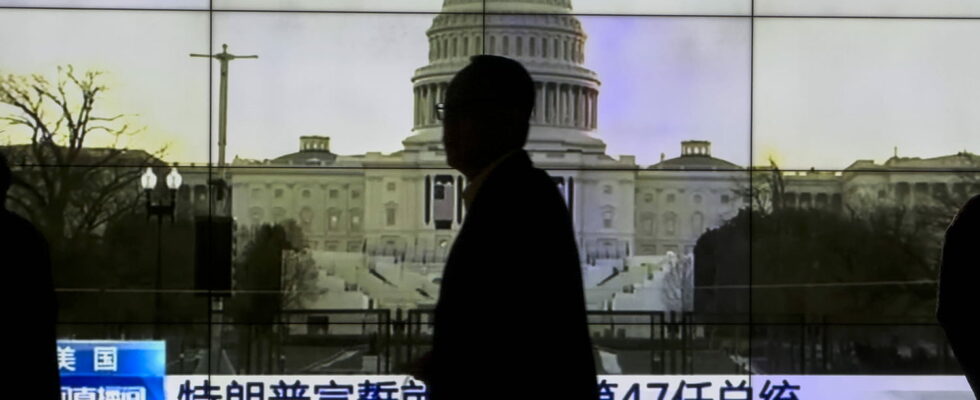Barely invested as president, Donald Trump is already reversing one of Joe Biden’s decisions. Bad news for China.
Donald Trump makes a remarkable return to the White House. To the applause of his supporters, gathered in the Capital One Arena, he signed a flurry of presidential decrees, symbols of a new “golden age”, according to him, for Washington. He also took the opportunity to once again hammer home his mantra of “America first”, in a context where the United States has an interest in being “respected” again in the world.
As such, he returned to one of the measures taken by his predecessor Joe Biden in the last days of his mandate. On January 14, the former president had in fact chosen to remove Cuba from the blacklist of countries supporting terrorism, in order to “encourage” discussions carried out under the aegis of the Catholic Church for the release of a ” significant number of political prisoners” on the island, a senior US official said.
This “gesture of goodwill” did not go unnoticed in Cuba. In response, the country announced that 553 people imprisoned for “various crimes” would be released “gradually”. Since then, a total of 127 prisoners have been released, including historic dissident José Daniel Ferrer.
An attempt at “intimidation”
But Biden’s policies end when Trump’s begin. A few days before the end of his mandate in 2021, the populist leader had in fact made the exact opposite decision, that of placing Cuba on this list which also includes North Korea, Iran and Syria. Barely invested, he obviously did not fail to do it again once his swearing-in was over.
Cuba immediately reacted by calling this decision “an act of arrogance and contempt for the truth.” “This is not surprising. Its objective is to further strengthen the cruel economic war against Cuba for the purposes of domination,” Cuban President Miguel Diaz-Canel reacted on X.
In the process, China took the side of its socialist ally by accusing the United States of “intimidation”. The recurrent use of this list by Washington “goes against the facts” and “fully reveals the hegemonic, authoritarian and brutal face of the United States”, declared Guo Jiakun, a spokesperson, at a press briefing. word of the Chinese Ministry of Foreign Affairs.
Cuba and China have long established a friendship that is “strategic, mutually beneficial, likely to challenge the neighboring United States power in its security enclosure”, according to the specialist in political history and geopolitics of the Caribbean, Éric Dubesset, in “China in Cuba’s foreign policy”. In June 2024, Havana had also “decided to remove the visa for Chinese travelers who want to visit the Caribbean island” in order to revive tourism, underlines Fabrice Mercorelli, of the travel agency C2C Travel, at TF1.
